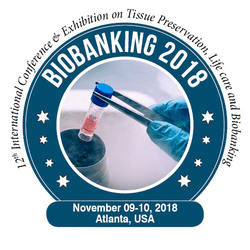Renee Cottle
Clemson University, USA
Title: The promise of cell-based gene therapies using non-viral delivery approaches
Biography
Biography: Renee Cottle
Abstract
CRISPR and associated protein (Cas9) system have proven to be the most promising gene editing tool available for therapeutic applications due to its facile design and robust targeting activity in mammalian cells. When coupled with a donor template, CRISPR-Cas9 nucleases trigger the homologous directed repair pathway to precisely incorporate new gene sequences into the genome, which can be leveraged for the correction of genetic diseases in the patient’s cells. Despite the advantages of this approach, there are several barriers to its application in humans. One major hurdle is delivering a sufficient amount of CRISPRCas9 complexes and donor templates into target cell types. In previous research, we investigate microinjection, traditionally applied for in vitro fertilization, for direct, controlled delivery of nucleases and donor template into human hematopoietic cells as a novel therapeutic strategy for sickle cell disease. We characterized a microinjection system, investigated the effects of microinjection on cell functionality, and demonstrated proof-of-principle of gene editing in human hematopoietic K562 cells microinjected with TALENs and CRISPR-Cas9 along with donor template. We found that injection negligibly affects the cell proliferation potential, provides high cell viability, and can be used to control the exposure of nucleases in injected cells. A major drawback of microinjection is the low throughput. In contrast, nucleofection is amenable for therapeutic applications. Currently, we are optimizing nucleofection of CRISPR-Cas9 nucleases and donor templates into hepatocytes as a therapeutic strategy for familial hypercholesterolemia. We show >90% on-target CRISPR-Cas9 activity in primary hepatocytes, spurring further development into a novel cell-based gene therapy for metabolic liver diseases.

